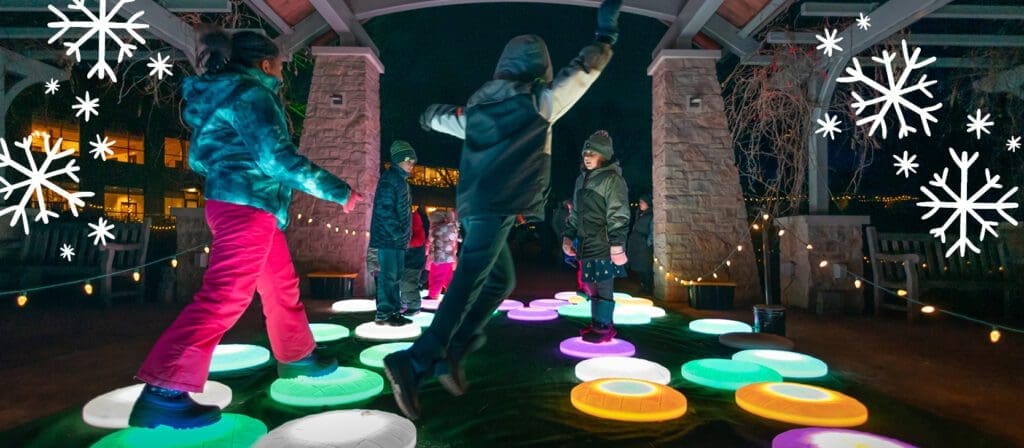
(Area between Lake Michigan and Lake Erie)
PC: Aaron Burden on Unsplash
If you get the chance to visit us this summer, you will see eight larger than life sculptures scattered throughout the Garden which are part of the Washed Ashore: Art to Save the Sea exhibit. This exhibit features several water-loving sea creatures including Chompers the Shark and Priscilla the Parrot Fish. Also starring in the collection of sculptures built entirely from trash washed up from waterways are Stanley the Sturgeon and Giacometti the River Otter.
That’s right. The exhibit is not just art to save the seas. Our fresh-water friends, Stanley and Giacometti, bring awareness to plastic pollution happening in the Great Lakes and local freshwater rivers.
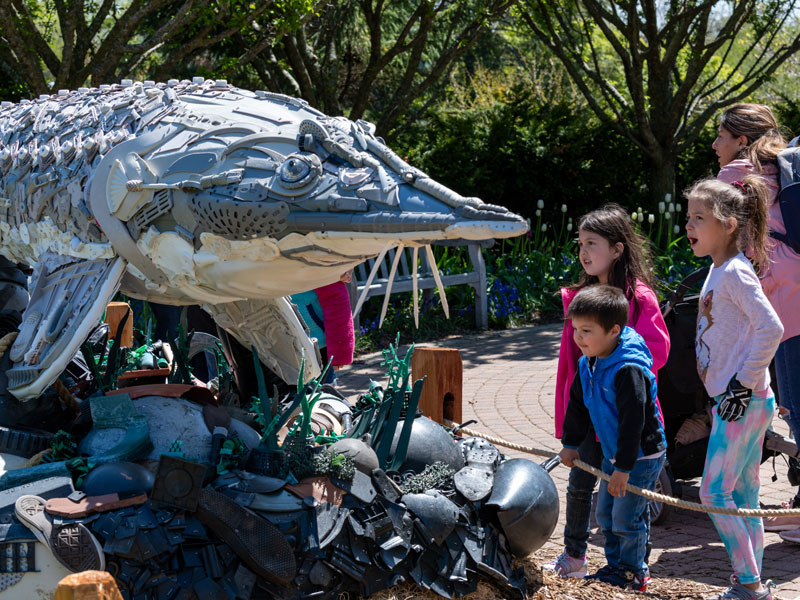
PC: John Oates Photography
Pollution in the Great Lakes has a significant effect on the quality of life of 100,000 different species who call freshwater home. These freshwater ecosystems account for 0.01% of Earth’s total surface area but are among the most threatened environments due to pollution.
Imagine the impact pollution has on Lake Sturgeon who hunt lake and river bottoms using their whisker-like barbells to feed on small invertebrates. They are at risk of consuming plastic and other life-threatening pollutants. Or River Otters who travel, play, and hunt in freshwater rivers. Picture these otters having to play amongst the plastic bags and bottles floating down rivers!
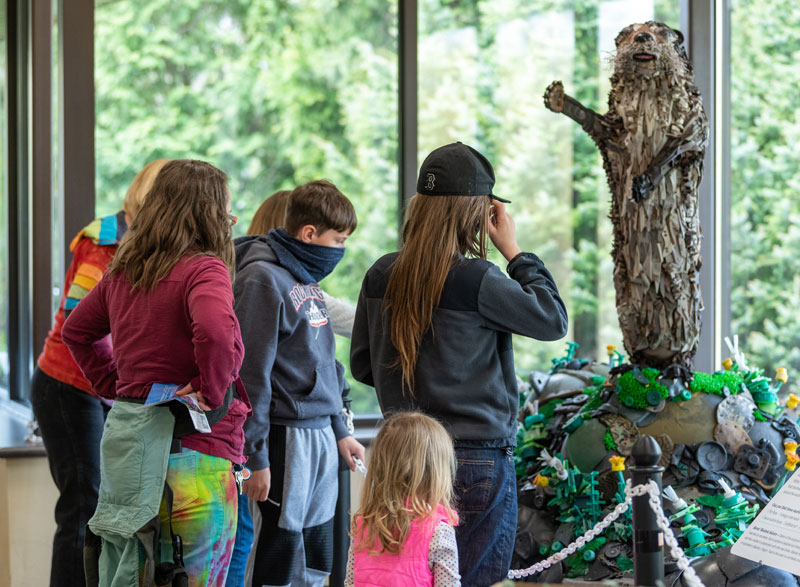
PC: John Oates Photography
We not only need to protect freshwater for inhabitants like sturgeon and river otters, but for our health and the economy, too. The Great Lakes are the source of drinking water for more than 40 million people and provide for local economies through tourism, irrigation, fishing, and transportation.
What can we do to help? First, let’s understand the facts. Here are six facts about water pollution in the Great Lakes.
PLASTIC IS TOO TINY TO CLEAN UP
When you inspect the plastic pieces that comprise Stanley the Sturgeon and Giacometti the River Otter, you may see anything from chair parts to bike pedals to bottle caps. While large pieces of plastic litter our oceans and lakes, a major source of pollution in the Great Lakes are plastics less easily seen: micro-plastics.
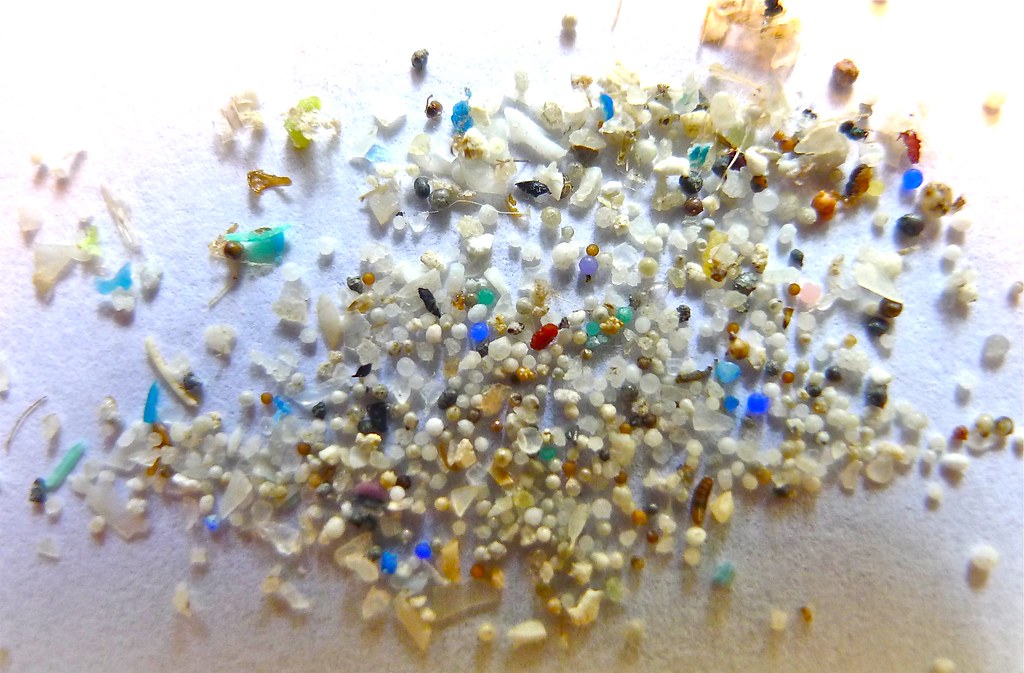
Micro-plastics and smaller fragments of plastic, comparable to the size of a grain of rice, that are found in cleansing products like soap with exfoliant beads and toothpaste, make them very difficult to clean up. Researchers have found a surprisingly large amount of micro-plastics in all five Great Lakes. Each year an estimated 22 million pounds of plastic debris enters the Great Lakes. That’s a lot of plastic.
PLASTIC HAS BECOME PART OF THE FOOD-CHAIN
Unfortunately, these tiny particles of plastic known as micro-plastics are very easily mistaken as food and ingested by fish. Once plastic is consumed by fish they become a part of the food chain. This means micro-plastics are not only dangerous to these fish but to larger predators and humans too since they can travel up the food chain, ultimately getting absorbed into our circulatory system and organs.
Micro-plastics have even been found inside the stomachs of birds, anything from clothing fibers and synthetic leather to glass and paint.
PLASTIC IS IN OUR DRINKING WATER
The Great Lakes are a major source of drinking water, and unsurprisingly, that drinking water contains micro-plastics. Micro-plastics can make it through water treatment facilities to our taps because of their small size and prevalence in the lakes.
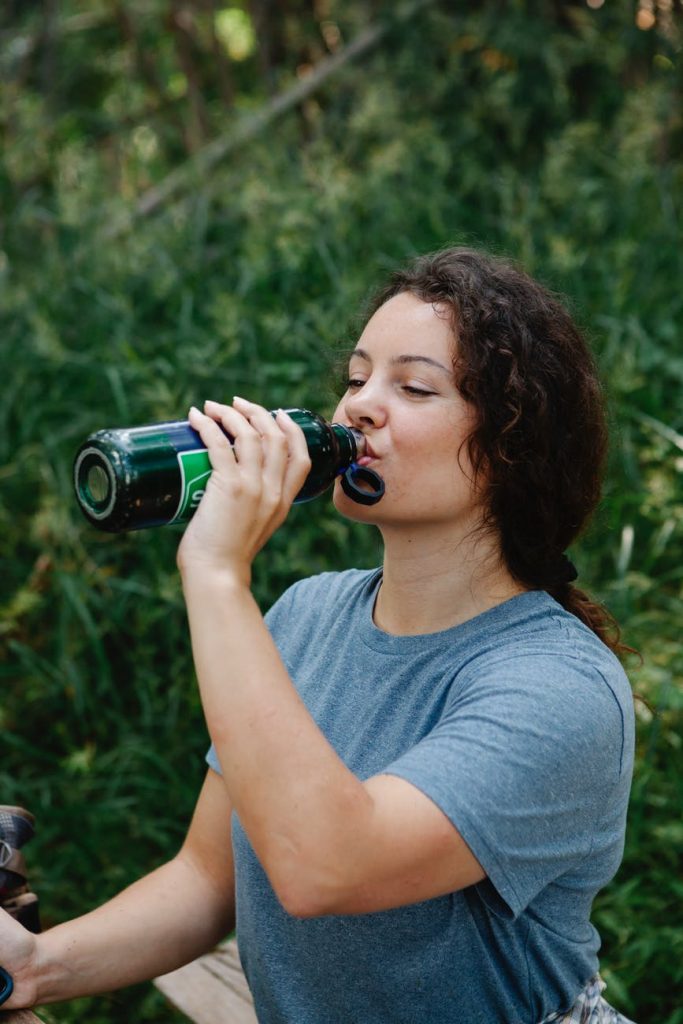
Scientists have even seen particles of plastic in some of the world’s most popular bottled water brands. These plastics cannot be destroyed and have the ability to break down until they can escape through treatment plants into our drinking glasses.
FRESH WATER FLOWS & BREAKS DOWN PLASTICS DIFFERENTLY
The flow and breakdown of plastic debris in the Great Lakes is different than the oceans. Plastic in the ocean will wash up on shore from faraway places because the global ocean currents can carry plastic across the globe. Plastic entering the Great Lakes however will wash away from beaches into the lakes and then flow out to the oceans. Waste we leave at lake beaches contributes to the plastic collected in the oceans – rivers to lakes to oceans!
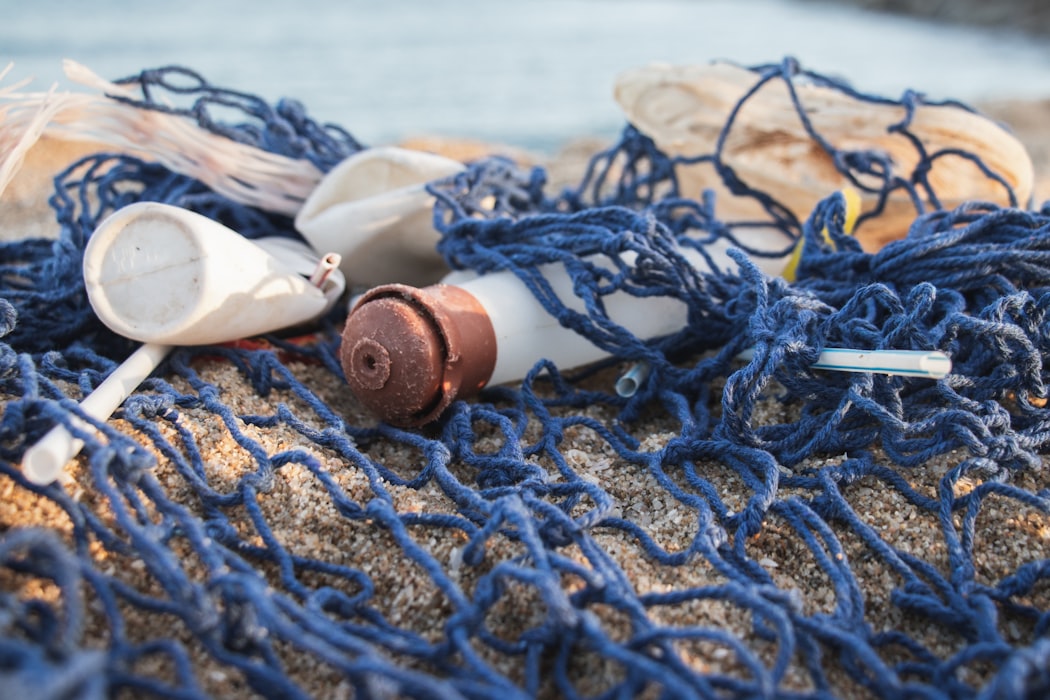
In addition, saltwater is denser than fresh water so the oceans are known to create different current patterns because of this density difference. This causes plastics to flow differently in the Great Lakes compared to the oceans. Another difference is the oceans never freeze. The freezing of water in the Great Lakes leads to the breakdown of plastic causing an increase of micro-plastics.
CHEMICAL POLLUTION POSES A SIGNIFICANT THREAT
Plastic pollution isn’t the only form of pollution devastating the Great Lakes. Chemical pollution can come from anywhere but mostly originates from industrial sites and farms. They are extremely toxic to the water and include pesticides from farming, pharmaceuticals, and fire retardants.
Chemical pollution creates a very toxic and harmful environment for Stanley and Giacometti. What can you do to help? Make sure to dispose of hazardous chemicals properly and don’t dump it down drains. It’s also important to recycle used motor oil.
NUTRIENT POLLUTION & ALGAE
Another problem existing in the Great Lakes is the excessive growth of algae resulting from the large amounts of nutrients in the water. Agriculture is mostly to blame for the pollution of these nutrients, including nitrogen and phosphorous, through fertilizer, soil erosion, and animal manure.
We often contribute to nutrient pollution without even knowing. Storm water runs off hard surfaces into local waterways all while carrying nutrient pollutants. Even everyday products such as soaps and detergents can cause problems.

PC: Greatlakesecho.org
What can you do to help? Wash your car on your lawn instead of your driveway to avoid runoff of soap into the street. Start a compost to reduce the amount of waste material from your garden and lawns. You can also test your soil before you fertilize.
It’s all too easy to get disheartened by the amount of pollution happening in our local waterways, but knowledge is the first step in finding solutions! Here are a few simple tips to help you take action against plastic pollution:
- Reduce the amount of plastic you use. Carry a reusable water bottle or a reusable bag instead of relying on single-use plastics, if you’re able.
- When you make a purchase, consider sustainable options like biodegradable or natural materials to support the production of more sustainable products.
- Leave it better than you found it! Next time you’re on a walk or exploring the outdoors, take your trash with you when you leave. Even better, stop and pick up any trash you may find along the way and dispose of it properly.
Want to go further? Check out our Washed Ashore web page for even more sustainable inspiration!
Make sure to see Washed Ashore: Art to Save the Sea this summer, too. It’s included with Garden Admission and open daily from 9 am-8 pm through August and 9 am-6:30 pm through September 26.
Sources




